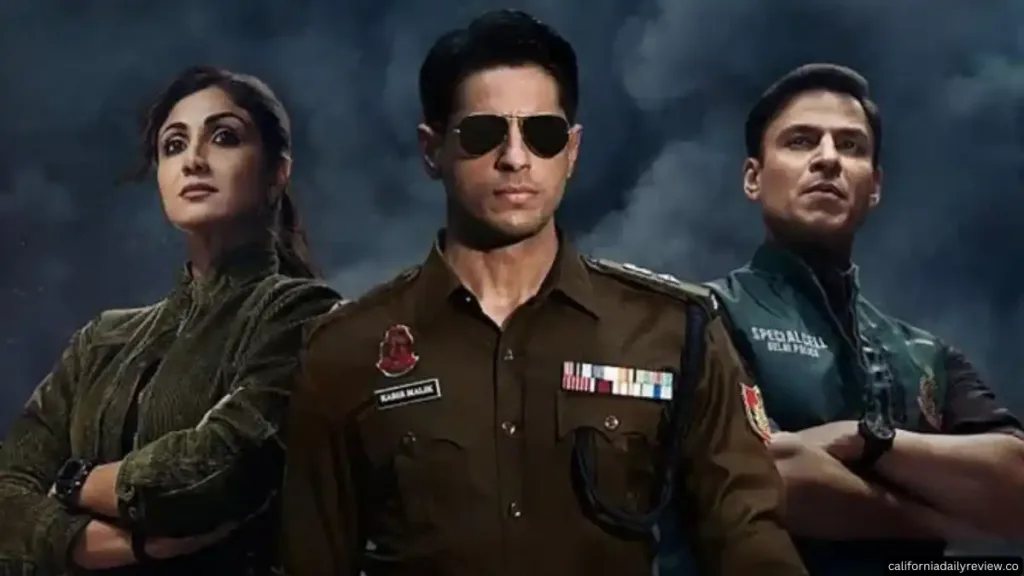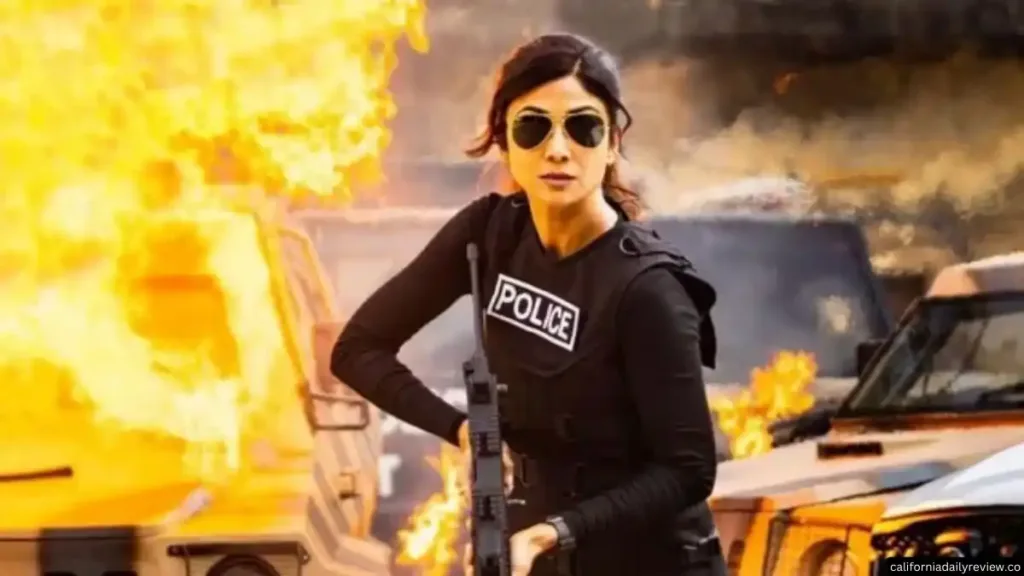Indian Police Force Review: Rohit Shetty, renowned for his high-octane Bollywood blockbusters, takes a bold step into the world of streaming with his debut web series, “Indian Police Force.” In this blog post, we delve into the key aspects of the series, analyzing its departure from the typical Shetty formula and exploring the unique elements that set it apart.
Indian Police Force Series Review:
Divergence from Rohit Shetty’s Signature Style:
- Contrary to expectations, “IPF” doesn’t adhere strictly to the trademark Rohit Shetty formula.
- Shetty claims the scale is as life-sized, but the series offers more intimate moments and a different approach to storytelling.

A Collective Heroism:
- Unlike Shetty’s previous films often focused on singular heroes like Singham, Simmba, or Sooryavanshi, “IPF” emphasizes the entire police force.
- Sidharth Malhotra’s portrayal of Kabir represents the efficient, everyman police officer rather than a larger-than-life personality.
Unexpected Intimacy in Plot and Characterization:
- The series surprises with intimate moments, such as discussions between Kabir and his mother, adding depth to the characters.
- The camaraderie among officers, sharing moments over cutting chai, deviates from the typical action-packed sequences seen in Shetty’s movies.

Villain’s Backstory Exploration:
- The show allows for a detailed exploration of the villain Omar’s backstory, a dimension often rushed in Shetty’s film narratives.
- Mayyank Tandon’s acting debut as the villain brings a subtle yet impactful touch, deviating from the traditional larger-than-life supervillain persona.
Empowering Women Characters:
- Shilpa Shetty’s entry as a tough, no-nonsense cop is a breath of fresh air, breaking the mold of male-dominated narratives.
- Minor women characters, played by Shweta Tiwari, Shruti Panwar, and Vaidehi Parshuramani, contribute meaningfully to the storyline.
Realism in Cop Universe:
- The series introduces a significant shift by featuring a major character’s death, elevating the stakes and justifying the long-form storytelling.
- Cop characters face real consequences, breaking protocols and dealing with obstacles that hinder their progress.

Action Sequences and Settings:
- “IPF” offers thrilling action sequences set in diverse locations, including Chandni Chowk, Goa, Dhaka, and a yacht.
- Handheld cameras provide urgency and tangibility to the scenes, but some fast-forwarded editing choices may affect the overall pace.
Long-Form Storytelling:
- The series embraces long-form storytelling, portraying the authentic pace of a cop’s life with obstacles and challenges in every small victory.
- The shift from invincible cop heroes to a more realistic depiction adds depth to the narrative.
Conclusion:
“IPF” marks a significant departure for Rohit Shetty, showcasing a nuanced and realistic portrayal of police life. While diverging from his signature style, the series introduces compelling characters, explores backstories, and presents a refreshing take on heroism. As Shetty ventures into the streaming world, “Indian Police Force” offers a promising blend of action, emotion, and authenticity.






